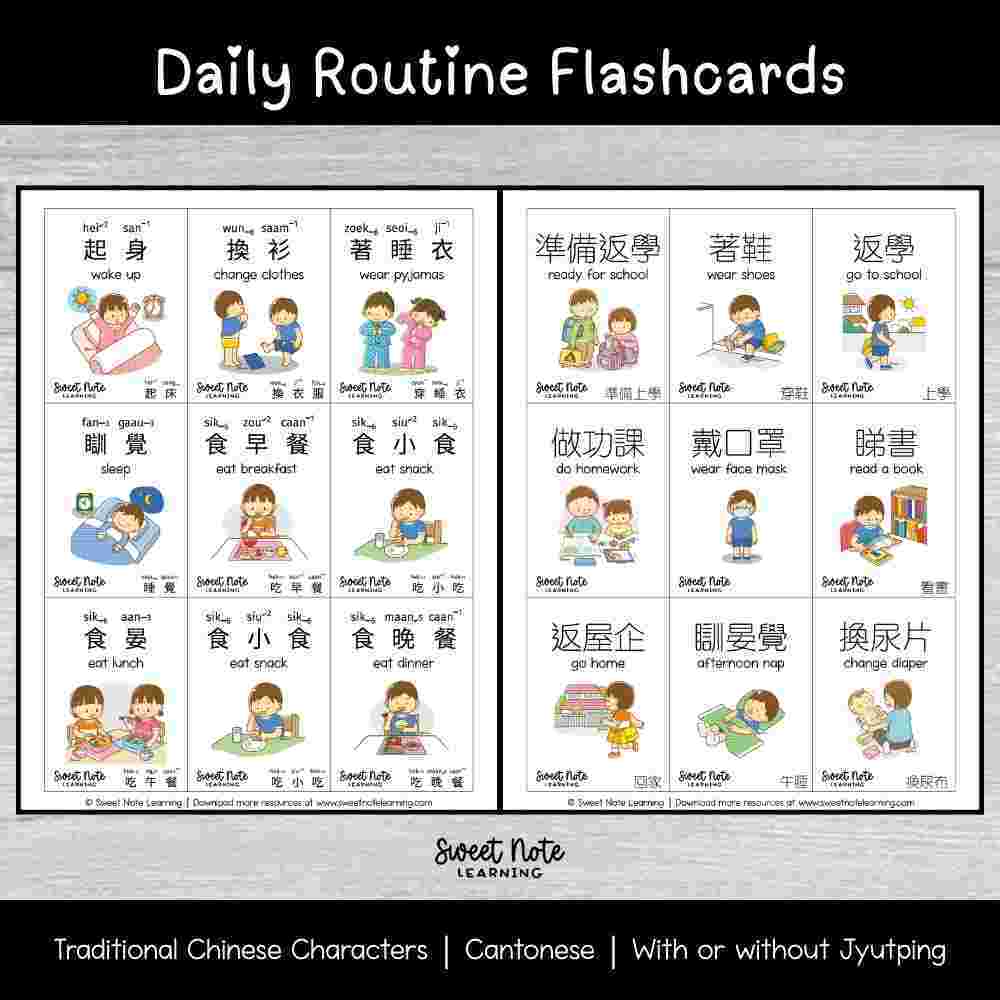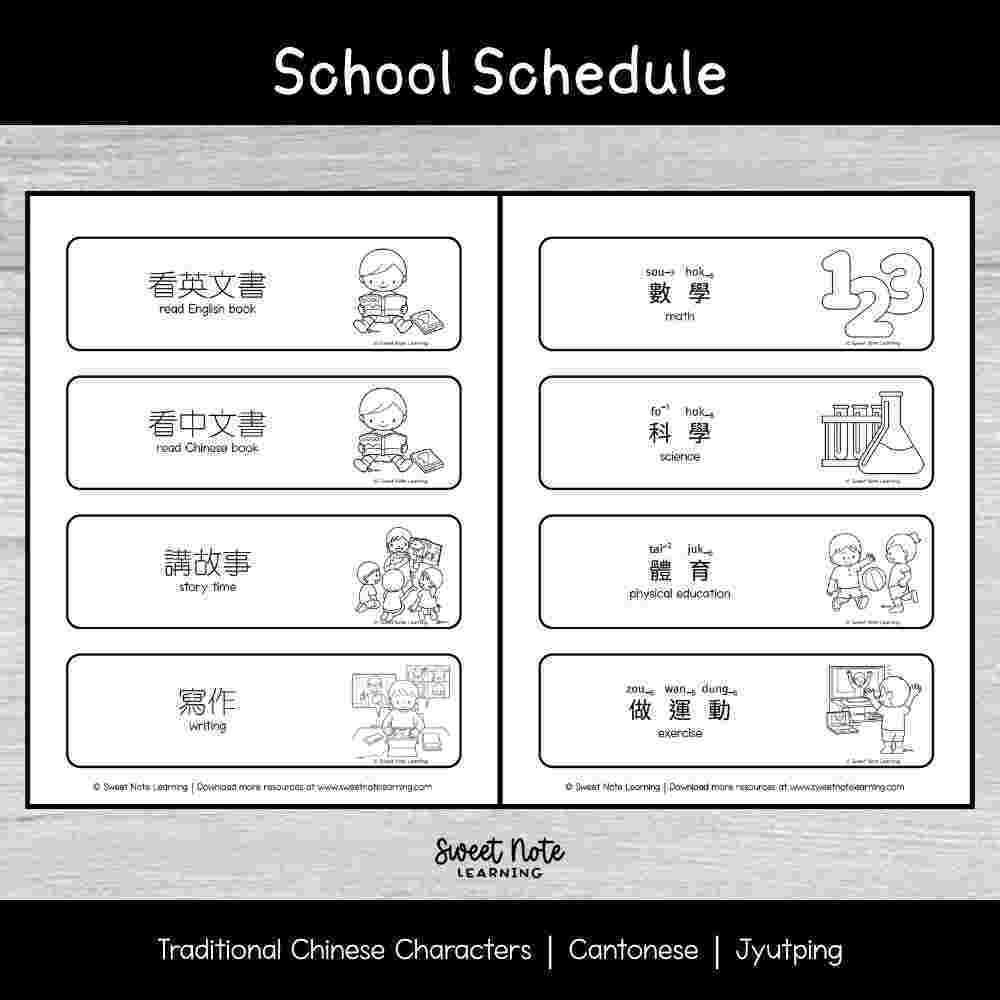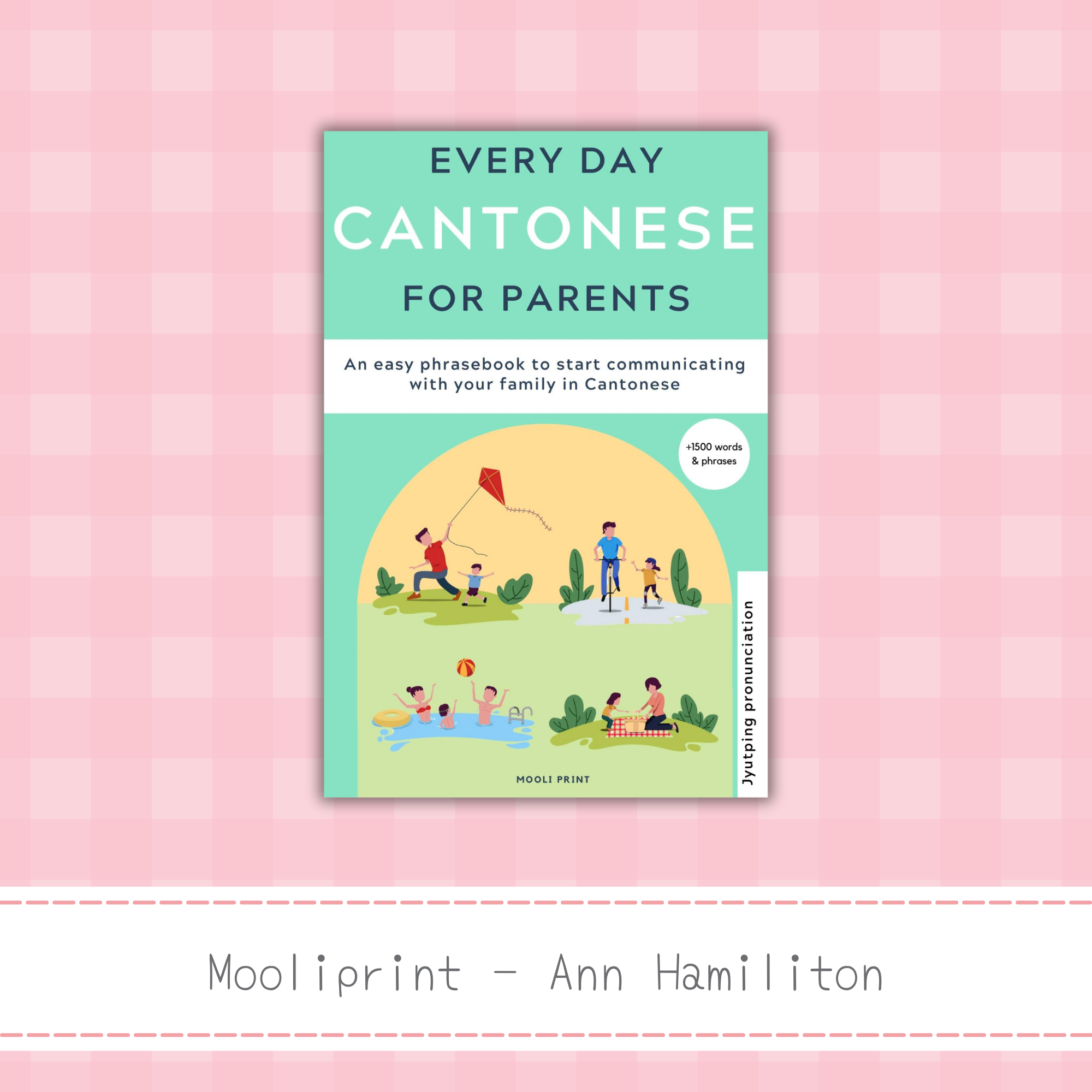How I Taught my Kids Cantonese
Are you raising your kids outside of Asia but want them to learn Cantonese? You’re not alone! I am a CBC (Canadian Born Chinese) who grew up speaking in an English speaking household. When I had children, I dreamt of raising them bilingual but had no clue on how I would do it. Over the past five years, my kids and I have been on a Cantonese learning journey — and I want to share what worked for us.
These simple tips will help you create a Cantonese-rich home environment, even if you’re not fluent yourself.
Create a Cantonese Immersive Environment
Kids learn best when they hear and use Cantonese every day. You don’t need to make your whole household 100% Cantonese. Instead, aim to:
- Adding songs, books, and videos in Cantonese to your daily routine
- Creating a print-rich environment with Chinese labels or posters
- Building positive associations so your child enjoys using Cantonese
Small, consistent exposure is more powerful than occasional big efforts.
Easy Ways to Add Cantonese Into Daily Life
Here are simple, practical activities you can start today:
- 🎶 Sing Cantonese songs together
- 📚 Read children’s books with audio support
- 🏷️ Label items around the house in Chinese
- 📺 Watch Cantonese shows or movies
- 🎲 Play Cantonese games and activities together
- 👥 Arrange playdates or video calls with Cantonese-speaking relatives
- 🌱 Make it part of routines (e.g., a song at breakfast, a story before bed)
Tip: Start with one activity and stay consistent. You could try one Cantonese song every morning. Once it's a part of your regular routine, add another activity like listening to a book together.
What Worked for My Family
-
We read Chinese books every day using our chameleon reader
-
We listened to Cantonese songs daily (sometimes on repeat!)
-
We played fun and simple games to make Cantonese learning fun
-
We celebrated big Chinese festival with fun activities, recipes and crafts
Don't worry about being perfect or if your pronunciation is off. The most important thing it to build a connection with your child. I still cannot pronounce a lot of words correctly but I found that the diverse exposure from other sources, helped my kids develop the correct pronunciation over time.
At the start, my main focus wasn’t speaking — it was building listening skills and comfort with the language. Over time, I saw my kids begin to understand and respond in Cantonese.
Resources to Creating an Immersive Cantonese Environment
I have created several blog posts highlighting different resources to learn Cantonese, many of which are free! Check out my blog to find these resources.
**New** I have compiled some of our favourite resources into an easy to read PDF format. This resource includes our favourite music channels, books, videos and classes in Cantonese.
Download Our Favourite Cantonese Resources for Kids
Cantonese Classes
Cantonese classes are not necessary to create an immersive environment, but if you are in the position like me where you are not fluent and want your children to be immersed with the language with a native speaker on a regular basis, classes can help. I would opt for classes that are age appropriate with fun activities like singing, story telling and playing games together. My kids had fun in these classes and looked forward to them every week!
Here are some live zoom classes that my kids have personally enjoyed.
- Roundabout – a 30 minute class where children sing songs together
- Locy Lee Learning LLMC – a 30-45 minute class where children learn about music, sing songs and play games to learn about music. Bells and piano classes are additional add-ons to the 30 minute class
- Locy Lee Learning Sing & Speak – a 30 minute class where children learn everyday conversation and vocabulary through songs and games.
Cantonese Story Times Resources
You can also look for weekly story times. Some local libraries may offer this service on a weekly or monthly basis.
- Live Online Cantonese Story Time: Yuto | Cantonese in Ireland
- Read Alouds Videos: Cantonese [Blog Post currently under construction]
- Libraries with Cantonese Story Times: Toronto, ON | London, UK | San Francisco , CA | Melbourne, Australia
Toronto Public Library has a free program called “Dial-a-Story” where you can call a phone number and a story will be told over the phone. There are 16 languages available, including Cantonese. Click here for more info.
Creating a Print-Rich Environment & Activities
Even if reading Chinese characters is not apart of your goal, I found that having the Chinese characters visible was a helpful reminder to use Cantonese. I have personally created these printables to help my own family get started in learning Cantonese. I have included jyutping in a lot of my printables to help those who cannot read Chinese characters.
Routine Flashcards
Master these functional daily routine vocab with flashcards. Use them to create a schedule or display them in the area they will be used (i.e. “brush teeth” put in the bathroom).
Homeschool Schedule Cards
Create a homeschool schedule with these cards. It includes daily subjects such as math and science as well as preschool/kindergarten activities such as exploration time, outside time and crafts.
Cantonese Games
Learn how to play a variety of hand games (rock, paper, scissors) and group games (What time is it Mr. Wolf?) in Cantonese. Included are the game instructions with Cantonese dialogue for each game. These are fun for both little ones and school age kids.
Heart Messages
Start learning Cantonese on a positive note with these affirmation heart messages. There are 18 messages in total to build a child’s confidence.
Seasonal Scavenger Hunts
Take learning outside with these nature scavenger hunts. Kids will get fresh air and movement while learning Cantonese outdoors.
First Words Posters
Extend your child’s vocab with these first word posters. These are cute and colourful posters that are perfect for your playroom or as a book. Learn colours, numbers, seasons, weather, family and much more.
DIY Bilingual Busy Book
Learn about colours, numbers, seasons, weather and much more in this matching and interactive busy book. The vocabulary follows the First Words Posters but in a puzzle matching format. Download, print, and cut these for your child to play over and over again.
Parenting Resources to Learn Cantonese
Looking to brush up on parenting daily vocabulary, check out the following resources by Little Canto Learning and Mooliprint. These books cover every day vocabulary for communicating with your child as an infant to school age years. I have used both of these books to help me improve my Cantonese.
Daily Conversation at Home
This book includes jyutping pronunciation, basic grammar and phrases for: daily routine (getting up, brushing teeth, getting changed, hair, toilet, bath time, bed time), eating meals, homework, screentime, affirmations, working through conflicts and lots more.
Every Day Cantonese for Parents
This book includes jyutping or yale pronunciation, basic grammar and phrases for: daily routine (morning, feeding baby, breakfast, brushing teeth, getting washed and dressed), health and personal care (changing nappy, potty training, going to the toilet, bath time, feeling unwell, body), daily activities (weather, in the car, visiting friends, school, housework) and early learning and play (toys, reading together, at the park).
Final Thoughts
Raising bilingual kids takes time, but every little bit of Cantonese counts. Start small, stay consistent, and keep it fun. You don’t need to be fluent — you just need the right tools and a willingness to try.
✨ Want more support?
- Read my other blog posts for Cantonese learning tips.
- Download my free resources to get started today.
- Follow me on Instagram @sweetnotelearning
You’ve got this — and your kids will thank you for it one day! 💛











